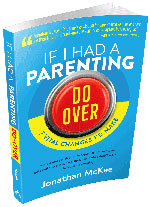 “Should I allow my 13-year-old to use Twitter?”
“Should I allow my 13-year-old to use Twitter?”
It happens after every parent workshop I teach. Parents line up with specific questions.
“Is Instagram bad?
Should I let my teenager have her phone in her room at night?
“Should I be worried if I found my teenager using Omegle?”
“All my daughter’s friends are on Ask.fm and she wants to be too. Should I let her?”
(By the way, I know I’ll get comments asking, so my answers to those questions would be: no, no, yes, and no. I let my own teenage daughters have multiple social networking sites, but Omegle and Ask.fm both are venues where anonymous people can chat with little to no accountability, and that’s never a good situation. Here’s an article with more specific details about individual apps.)
The questions always vary, but they all root from the same question:
“Is social media safe?”
This is a pretty broad question. It’s like asking, “Should I let my daughter date boys?” My answer would be, “Depends on the boy.”
There are some great ways to connect with others through social media, and there are some pretty raunchy venues. The question parents should probably really be asking is:
“How can I teach my kids to make wise decisions with social media?”
Social media is a reality. Yes, social networking can cause a lot of drama; but we live in a world where 95% of the teens use the Internet, 74% are mobile Internet users and 81% use some sort of social network site (Pew Research). Even if parents ban their kids from using social media, chances are these same kids will start using social network sites when they are 18-years-old and making decisions for themselves… and I’d ask those parents, “Are you preparing them to be responsible social media users when that day arrives?”
Parents need to pull their axiomatic ‘head out of the sand’, set some realistic guidelines, and begin engaging their kids in conversations about social media and technology.
This begs the question, “What guidelines? What conversations?”
Let’s see what some of the experts are saying. I’ll share just a few, then let’s look at some of the common denominators.
For example, in October 2013, the American Academy of Pediatrics (AAP) published a report titled Children, Adolescents and the Media unveiling the effects of media on children zero to 17-years-old. These doctors recommended the following to parents:
- Limit the amount of total entertainment screen time to less than 1 to 2 hours per day.
- Discourage screen media exposure for children less than 2 years of age.
- Keep the TV set and Internet-connected electronic devices out of the child’s bedroom.
- Monitor what media their children are using and accessing, including any Web sites they are visiting and social media sites they may be using.
- Coview TV, movies, and videos with children and teenagers, and use this as a way of discussing important family values.
- Model active parenting by establishing a family home use plan for all media. As part of the plan, enforce a mealtime and bedtime “curfew” for media devices, including cell phones. Establish reasonable but firm rules about cell phones, texting, Internet, and social media use.
In January 2014 Common Sense Media released an article providing “smart strategies” for managing your kids’ media and technology this year. These strategies included:
- Check out your kids’ social sites. Literally ask them to show you where they visit, what they do there, who they talk to and what they upload.
- Play their games with them. Watch them play their games or even play with them.
- Share music. Play music with them and ask them to play you their favorite songs. Take advantage of safety mode features on sites like YouTube where parents can block inappropriate content.
- Take control of your TV. Preview shows, and use the remote to avoid bad content.
- Research your kids’ apps. Try out the app with your kids.
- Establish a digital code of conduct. Set rules around responsible, respectful usage.
Here’s another article from writer Derry London, sharing “Steps Parents can Take” to help their kids steer clear of harmful social media sites like the new app Yik Yak, allowing kids to express themselves in a truly anonymous fashion. In this article he recommends the following to parents:
- Enable Parental Controls on ALL Mobile Devices and Computers.
- Retain Log-In Information for ALL Your Child’s Social Networks.
- Lock the GPS Location, such as location services so the current location of your child can remain hidden.
Just a few weeks ago I wrote an article titled Keeping Instagram Safe for our Parenting Help page on TheSource4Parents.com. In that article I recommended the following to young people using social media:
- Only chat with people you know face to face.
- Don’t post anything you wouldn’t want Grandma to see.
- Never post a mean comment about someone.
- Consider setting up privacy settings so only followers can see your photos. Then they have to send you a follow request which you can either approve or deny.
- Be careful posting your location. If you allow anyone to follow you, then they may be able to see the location information when you post a picture of your home or your school. You can remove those locations from your photos by editing your photo map (more on how to do that here).
- Always report any abusive behavior, the app makes it easy to do. Also, feel free to block a user if they creep you out! (Just don’t block Mom or Dad, or they won’t pay your phone bill!)
COMMON DENOMINATORS OF WISDOM:
It’s funny how when you start reading these reports you begin hearing the same thing again and again. Talk with your kid, set realistic guidelines, co-view and try out entertainment media and technology with your kids…
So what do I recommend? Walking with your child through this process, something I spend an entire chapter talking about in my book, If I Had a Parenting Do Over. If you kid asks you, “Can I have Snapchat?” A good response might be, “I don’t know, let’s check it out together.”
But maybe you’re looking for some specific guidelines, especially as your kids are young. Here’s some principles and guidelines I recommend from that book:
- Limit screentime. Most experts agree that it’s not good for kids to stare at their devices all day. Some experts even say kids under 12 shouldn’t even have handheld devices. Parents should model this themselves.
- Start strict; slowly give more freedom as your kids approach age 18. I did this with my own daughter and here’s how it turned out.
- Know what your kids are accessing on their devices. While they’re young, require them to get permission before downloading any apps or signing up for any social network sites. As they get older, engage in frequent conversations about their media.
- Coview entertainment media and try out games and apps with your kids.
- Always know the passwords. This is easy if you start young, and very difficult if you walk up to your 17-year-old for the first time and ask them for their Twitter password. But you’re the parent.
Bottom line: Become involved in your kids’ world. Subscribe to parenting articles and blogs, and most importantly, engage in frequent conversations with your kids about media and technology. After all… someday you won’t be there standing over their shoulder.
Are you equipping them for that day?

JONATHAN’S BRAND NEW
BOOK HELPING YOU WITH THIS PROCESS
IF I HAD A PARENTING DO OVER



 Follow
Follow